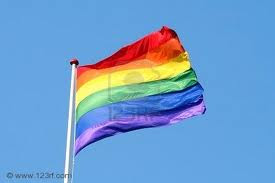 Bioethics has taken quite a ride since its inception circa the early 1970s. Where once I think the ambition was to influence public policy, medical ethics, and court rulings toward a certain generally agreed upon direction, the field is now so ethically polyglot and diverse that it seems to me to be thwarting its own ambitions.
Bioethics has taken quite a ride since its inception circa the early 1970s. Where once I think the ambition was to influence public policy, medical ethics, and court rulings toward a certain generally agreed upon direction, the field is now so ethically polyglot and diverse that it seems to me to be thwarting its own ambitions.
Latest example, an enterprise to create a sub field called “Queer Bioethics” to deal exclusively with issues relating to usual list of sexual identity categories. From the Bioedge report:
Two bioethicists at the University of Pennsylvania have issued a stirring call for a “queer bioethics” in the leading journal Bioethics. Lance Wahlert and Autumn Fiester point out that many of their colleagues have been insisting that bioethics has to be reimagined to include the powerless and to challenge the status quo. If so, they say, the time has certainly come for bioethical analysis which accommodates LGBTQI (lesbian, gay, bisexual, transgender, queer, and intersex) persons.
“Queer bioethics requires us to take a two-fold approach: (1) We must pay greater attention to the topics, identities, and issues that are blatantly queer, for the service of queer persons; and, (2) We must examine the most common, the most pedestrian, and the most germane of universal health issues (those we wouldn’t even instinctively think of as ‘queer’) and imagine how they might be complicated or rendered troubling by the injection of queer personhood.”
Their proposal does not give concrete proposals or identify areas which would need to change. But they point out until now LGBTQI issues have been studied in isolation from each other – the response to the AIDS epidemic, blood donation by homosexuals, treatment of intersex children and so on. These all ghettoised LGBTQI persons, shunting them into a corner far from normality. In fact, their existence should lead bioethicists to embark upon a radical journey of redefining the self and the person. “The time for queer bioethics is now,” they conclude.
I think this is an entirely wrong-headed approach. Atomizing us all into discreet categories detracts from our commonhood and connectedness. People should just be people in the health and medical contexts, and the common good should be about just that. On the other hand, such thinking does undermine any claim BIOETHICS can make to being authoritative. It’s more like moral chaos now.
Still, I find this self segregation within the field disturbing. I think it is hard enough to maintain support for the full objective personhood of us all, not to mention, keeping that moral designation within an exclusively human context. We don’t need any more ”sub categories” of people. Thus, if a “queer bioethics” becomes yet another bioethical advocacy platform pushing further reductionism of what it means to be human, by say, defining us by our sexual desires and drives, or seeking to justify sexual reassignment for pre pubescents and the like, I’ll be in opposition. We are far more than our sexual selves.
Me? I’ll continue to push a human exceptionalism bioethics based on the unique and intrinsic dignity of all human life, which includes everyone within its parameters, straight, gay, confused, or asexual.
Time is short, so I’ll be direct: FIRST THINGS needs you. And we need you by December 31 at 11:59 p.m., when the clock will strike zero. Give now at supportfirstthings.com.
First Things does not hesitate to call out what is bad. Today, there is much to call out. Yet our editors, authors, and readers like you share a greater purpose. And we are guided by a deeper, more enduring hope.
Your gift of $50, $100, or even $250 or more will bring this message of hope to many more people in the new year.
Make your gift now at supportfirstthings.com..
First Things needs you. I’m confident you’ll answer the call.



